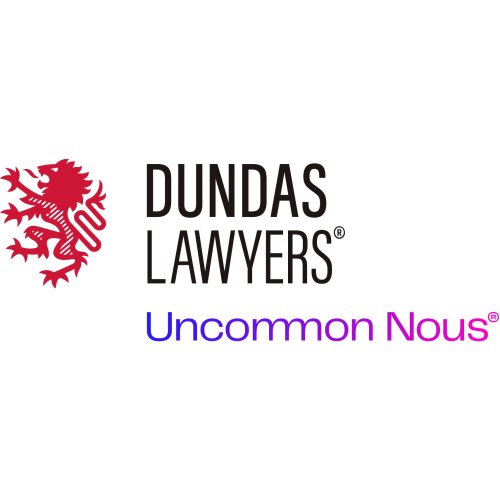Best Sports Law Lawyers in Australia
Share your needs with us, get contacted by law firms.
Free. Takes 2 min.
Or refine your search by selecting a city:
List of the best lawyers in Australia
About Sports Law in Australia
Sports Law in Australia is a diverse and dynamic area of legal practice that encompasses various aspects such as contract law, tort law, employment law, intellectual property, and commercial law as they pertain to the sporting industry. It covers the regulatory framework surrounding both amateur and professional sports, including issues related to athletes' rights, sponsorship deals, broadcasting rights, and anti-doping regulations. Given the significant economic and cultural importance of sports in Australia, Sports Law plays a vital role in ensuring fairness, safety, and integrity within the industry.
Why You May Need a Lawyer
Engaging a lawyer specializing in Sports Law may be necessary in a variety of situations. Common scenarios include negotiating and drafting contracts for athletes, coaches, or sports organizations, handling disputes related to sponsorship agreements or broadcasting rights, representing athletes or organizations in disciplinary proceedings, and providing advice on compliance with regulatory requirements, including anti-doping regulations. Lawyers can also assist with issues related to personal injury claims arising from sports-related incidents or matters involving sports governance and the integrity of competitions.
Local Laws Overview
Several key legal frameworks are particularly relevant to Sports Law in Australia. The Australian Sports Anti-Doping Authority (ASADA) is responsible for managing anti-doping regulations and ensuring compliance across all competitive sports. Additionally, the various sporting federations have their own codes of conduct and rules, which are subject to legal scrutiny. Employment laws, including workplace health and safety regulations, apply to sports organizations, and intellectual property laws are crucial for protecting the commercial interests related to sports branding and broadcasting rights. Furthermore, contract law governs the agreements between athletes, clubs, sponsors, and media entities.
Frequently Asked Questions
What is the role of ASADA in Australian Sports Law?
The Australian Sports Anti-Doping Authority (ASADA) plays a key role in maintaining the integrity of sports by enforcing anti-doping rules and conducting drug testing of athletes to ensure fair competition.
How does Sports Law interact with employment law?
Sports Law often intersects with employment law, especially concerning the contractual agreements between athletes, coaches, and sporting organizations. This includes addressing issues related to employment rights, termination, and workplace regulations.
Can Sports Law address issues of discrimination within sports?
Yes, Sports Law can address discrimination issues within sports by applying relevant anti-discrimination laws and regulations to ensure fairness and equality for all participants.
What legal measures are in place for safety in sports?
Workplace health and safety regulations, along with specific guidelines from sporting bodies, ensure that standards are upheld to protect the safety and well-being of athletes and participants.
Are there legal protections for sports-related intellectual property?
Yes, intellectual property laws protect trademarks, patents, and copyright associated with sporting events, teams, and merchandise, enabling owners to enforce their rights against unauthorized use.
How are contract disputes resolved in sports?
Contract disputes in sports can be resolved through alternative dispute resolution processes such as mediation or arbitration, or through court litigation if necessary.
What is the importance of sports governance in Sports Law?
Sports governance involves the legal frameworks and policies that ensure structured and ethical management of sporting organizations, upholding the integrity and transparency of competitions.
How does Sports Law address issues of match-fixing?
Sports Law addresses match-fixing through stringent regulations and penalties enforced by both legal bodies and sporting organizations to prevent corruption and maintain fair competition.
Can Sports Law help with personal injury claims in sports?
Yes, Sports Law can aid in pursuing personal injury claims resulting from sports-related injuries by applying tort law principles and seeking compensation where appropriate.
What should an athlete consider before signing a sponsorship deal?
Athletes should seek legal advice to evaluate the terms of a sponsorship deal, ensuring that the contract aligns with their interests, reflects fair compensation, and contains provisions for termination or dispute resolution.
Additional Resources
Individuals seeking further information or assistance in Sports Law can refer to resources such as the Australian and New Zealand Sports Law Association (ANZSLA), the Australian Institute of Sport (AIS), and legal publications specializing in sports law. Governmental bodies like Sport Australia and the Australian Competition and Consumer Commission (ACCC) also provide guidance on specific regulatory aspects of sports.
Next Steps
If you require legal assistance in Sports Law, consider consulting with a law firm or legal practitioner specializing in this field. They can provide personalized advice tailored to your situation. It's valuable to gather all relevant documents and details related to your case or query before the consultation. Additionally, free legal advice may be available through community legal centers or legal aid services for those eligible. Lastly, staying informed about changes in the legal landscape and attending relevant sports law seminars or workshops can further your understanding and readiness in handling sports law matters.
Lawzana helps you find the best lawyers and law firms in Australia through a curated and pre-screened list of qualified legal professionals. Our platform offers rankings and detailed profiles of attorneys and law firms, allowing you to compare based on practice areas, including Sports Law, experience, and client feedback.
Each profile includes a description of the firm's areas of practice, client reviews, team members and partners, year of establishment, spoken languages, office locations, contact information, social media presence, and any published articles or resources. Most firms on our platform speak English and are experienced in both local and international legal matters.
Get a quote from top-rated law firms in Australia — quickly, securely, and without unnecessary hassle.
Disclaimer:
The information provided on this page is for general informational purposes only and does not constitute legal advice. While we strive to ensure the accuracy and relevance of the content, legal information may change over time, and interpretations of the law can vary. You should always consult with a qualified legal professional for advice specific to your situation.
We disclaim all liability for actions taken or not taken based on the content of this page. If you believe any information is incorrect or outdated, please contact us, and we will review and update it where appropriate.
Browse sports law law firms by city in Australia
Refine your search by selecting a city.










